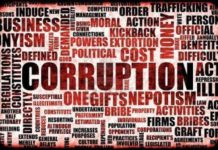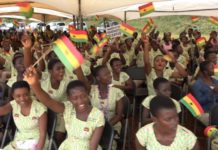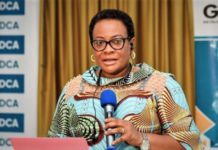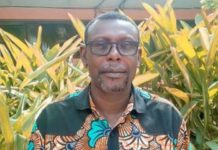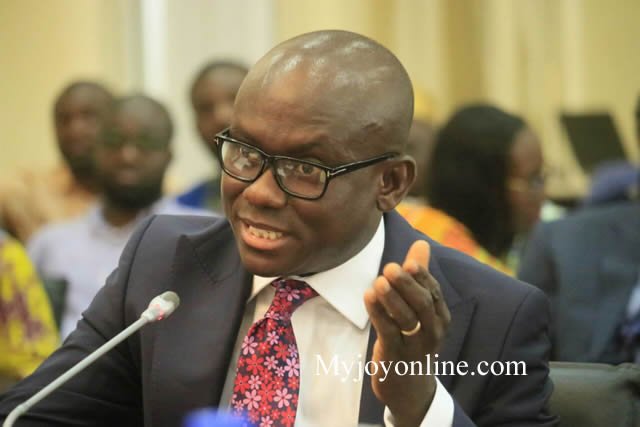
The fundraising manager of the Ghana Integrity Initiative (GII), Michael Boadi, remains undeterred by the recent dismissal of a lawsuit against the Government of Ghana (GoG) regarding the Agyapa deal by the ECOWAS Community Court of Justice (CCJ).
Boadi clarified that the case was thrown out because the Agyapa deal had not yet been implemented.
“Our intention was to prevent the Government of Ghana from using or selling state resources as collateral without seeking the people’s permission,” Boadi explained.
“Even if they decide to proceed with the Agyapa deal, they cannot utilize the country’s resources without involving the citizens. Governments change, but the people must have a say in decision-making.”
Boadi emphasized that the case is far from over, as the Agyapa deal will likely have adverse effects on ordinary Ghanaians rather than bring relief.
He expressed concern that, like previous government borrowing, the Agyapa deal, when implemented, will ultimately harm the economy in the years to come.
“We will not abandon this matter. The full ruling has not been released yet, so we are awaiting the court’s reasoning before taking further steps,” Boadi stated. He urged fellow Ghanaians not to give up, as the consequences would be detrimental for everyone. He pointed out that the country’s current massive debt burden and the resulting hardships faced by the people were a result of failing to challenge the government from the outset.
In December 2020, three anti-corruption groups, Transparency International, Ghana Integrity Initiative (GII), and the Ghana Anti-Corruption Coalition (GACC), filed a lawsuit against the government in the ECOWAS court, seeking to halt the Agyapa deal.
They argued that the deal involved politically exposed individuals and violated the rights of Ghanaians to maintain control over the country’s natural resources, as guaranteed by the African Charter on Human and People’s Rights.
However, the court, based in Abuja, Nigeria, upheld the government’s defense and dismissed the case brought by the three civil society organizations.
The court promised to release the detailed reasoning behind its decision at a later date.
The applicants contended that the Agyapa deal contravened various international conventions against corruption and, if allowed to proceed, would result in foreign control over Ghana’s gold resources.
In addition to seeking an injunction against the government, the applicants demanded an investigation into alleged corruption related to the deal and the prosecution of those involved.
In its defense, the government refuted the applicants’ claims, asserting that the Agyapa deal did not aim to relinquish sovereignty over the country’s resources to foreigners.
The government also argued that Transparency International, the first applicant, lacked the standing to participate in the case as it was a German organization and not a member of the ECOWAS Community.
The government further maintained that the applicant’s argument that the Agyapa deal violated the rights of Ghanaians to control natural resources lacked solid legal reasoning and was without merit.
The government also stated that the applicants failed to provide evidence to support their allegations that politically exposed persons intended to misappropriate Ghana’s resources through the deal.
The Minerals Income Investment Fund Act, 2018 (MIIF Act 978), was passed by Parliament with the objective of maximizing the country’s mineral wealth for the benefit of Ghanaians and ensuring sustainable receipt of royalties from gold mining companies.
The law was later amended to allow for the establishment of subsidiaries and utilize the MIIF as a special purpose vehicle for global business activities.
The primary subsidiary, Agyapa Royalties Investment Ltd, is planned to be listed on the London Stock Exchange.
In contrast, its subsidiary, ARG Royalties Ltd, will be listed on the Ghana Stock Exchange through initial public offerings.
Agyapa Royalties Investment Ltd will manage 75.6 percent of the country’s royalty inflow from the 12 existing gold mining companies in Ghana, with an expected addition of four more companies.
This arrangement aims to raise approximately $1 billion to finance mining concessions in Ghana and across Africa.
In November 2020, President Nana Addo Dankwa Akufo-Addo instructed the Minister of Finance to resubmit the agreements supporting the Agyapa deal to Parliament for a fresh approval process.
This decision came after a corruption risk assessment conducted by former Special Prosecutor Martin Amidu, which was submitted to the President.
ALSO READ:

